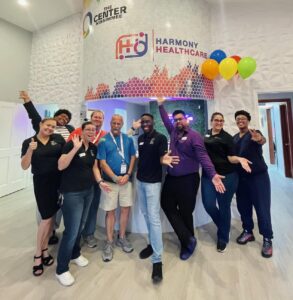
Does Primary Care Offer STI Testing?
July 1, 2025
Why Trauma-Informed Care Matters — and How We Practice It
August 19, 2025What is culturally competent healthcare, and why does it matter? Learn how inclusive, respectful care improves outcomes for diverse communities — and how to find it.
Culturally competent healthcare means more than just treating symptoms — it means treating people with dignity, understanding, and respect for who they are. Providers who offer this kind of care take time to understand how a patient’s culture, identity, values, language, and lived experience can impact their health and the care they receive.
It’s about creating a safe environment for every person — regardless of race, ethnicity, gender identity, sexual orientation, religion, or background — and delivering care that meets their unique needs.
Why Cultural Competence in Healthcare Matters
What is culturally competent healthcare? At its core, it’s about meeting people where they are, with care that respects their background, beliefs, and lived experience. When healthcare is culturally competent, it builds trust, improves communication, and leads to better outcomes for everyone.
Health outcomes are not just shaped by biology or access. They’re deeply influenced by how safe and understood people feel when seeking care. Without culturally sensitive healthcare, patients are more likely to delay treatment, experience miscommunication, or avoid care altogether.
Culturally competent care helps:
- Build trust between patients and providers
- Reduce health disparities in marginalized communities
- Improve treatment outcomes through better communication
- Create safer, more inclusive care environments
For LGBTQ+ individuals, people of color, immigrants, and others who have historically been underserved or mistreated, culturally inclusive healthcare can be life-changing.
What Does Culturally Competent Care Look Like?
A culturally competent provider doesn’t make assumptions — they ask thoughtful questions and listen with intention. You might notice culturally responsive healthcare when your provider:
- Respects your name, pronouns, language, and traditions
- Asks about your cultural or spiritual needs
- Offers interpreters or translated materials
- Understands how stigma or bias may have impacted your past healthcare experiences
- Builds a care plan that fits your values and life circumstances
It’s not about knowing everything — it’s about showing respect, staying curious, and creating space for patients to be themselves.
What’s the Difference Between Culturally Competent and Culturally Sensitive Healthcare?
These terms are often used interchangeably, but there are subtle differences:
- Culturally competent healthcare refers to providers and systems that have developed the knowledge and skills to effectively serve diverse populations.
- Culturally sensitive care is more about attitude and awareness — providers who recognize and respect cultural differences, even if they’re still learning.
Both aim to reduce bias, build trust, and improve the quality of care. Ideally, a healthcare provider offers both.
What Patients Can Expect from Healthcare with Cultural Competence
If you’re seeking culturally inclusive care, here’s what to look for:
- Providers who use inclusive forms and ask about your preferences
- Clinics that offer gender-neutral bathrooms, diverse staff, or LGBTQ+ visibility
- Conversations that feel safe and free of assumptions
- The option to bring a support person with you
- Transparent communication about treatment options and costs
At Harmony Healthcare, culturally appropriate care is at the heart of everything we do. We serve diverse communities throughout Central Florida, including LGBTQ+ individuals, people of color, immigrants, and those with limited access to traditional care.
Frequently Asked Questions About Culturally Responsive Healthcare
How do I know if a provider is culturally competent?
Look for signs like inclusive language on their website, a focus on community outreach, and a willingness to listen. You can also ask directly how they support diverse patient needs.
Is culturally competent healthcare only for certain groups?
No. While it’s essential for historically underserved communities, all patients benefit from respectful, personalized care that considers the whole person.
Can I ask for a different provider if I don’t feel respected?
Yes. You have the right to feel safe and heard in healthcare settings. If something feels off, it’s okay to ask for someone else or seek care elsewhere.
Do Harmony Healthcare providers offer culturally competent care?
Yes. Our staff are trained in trauma-informed, culturally aware care that honors your identity and experience, with services available regardless of insurance status.
Inclusive Healthcare Starts Here
Whether you’ve had negative experiences in the past or are just looking for care that truly sees you, culturally competent healthcare is a powerful step toward healing and self-advocacy.
At Harmony Healthcare, we’re committed to meeting you where you are — with inclusive, compassionate care that celebrates who you are. Visit one of our Central Florida clinics and you’ll see why we’re different. Contact us today!





